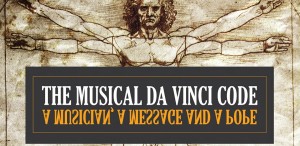
Today’s Tech, Ancient Music: The Seraphic Fire ‘Insta-CD’
If you were one of around 30 people who took Seraphic Fire up on its most recent offer last weekend, a concert of Renaissance polyphony should be showing up in your inbox sometime today.
The Miami-based choir, which gave four concerts — titled The Musical Da Vinci Code — of 15th- and 16th-century music from Thursday to Sunday, offered its listeners a deal: Give us $20, and we’ll send to your e-mail address an “insta-CD” of the concert you just heard.
In other words: That’s not spam, that’s Palestrina.
The idea for the CD came from the choir’s president and chief executive officer, Lorenzo Lebrija. Noting that many of the country’s smaller rock acts make more money from merchandising than they do from gate receipts at their concerts, he started to think about something similar that Seraphic Fire could do.
“We’ve always known that people are moved by our concerts,” Lebrija told me Tuesday. “And they have asked us for a while whether they can get a recording of [a specific] concert.”
The choir always records its concerts, and several of its CDs are self-labeled productions taken from those recordings. For these insta-CDs, which will include most of the Missa Papae Marcelli of Palestrina, motets by Josquin, Dufay and Constanzo Festa, and Allegri’s Miserere, choir founder and director Patrick Dupré Quigley sat down with the group’s audio engineer and chorus master to compile the best performances from three of the four concerts for the CD, Lebrija said.
If the choir is able to sell about 500 of the quick-hit e-mail discs over the course of the season, the $10,000 in fresh revenue would help it draw more financial support.
“If you can get $10,000, that’s a good corporate sponsor or a nice grant,” Lebrija said.
On Nov. 1, the group will release its newest self-issued CD, Ikon, a recording of choral music from the Eastern Orthodox tradition drawn from last season’s concerts. But its most ambitious recording, a professionally produced disc with the Western Michigan University Chorale of the Monteverdi Vespers of 1610, is currently being shopped to labels, and Lebrija is optimistic that it soon will be picked up.
But in the meantime, the e-mail recordings represent a savvy use of technology to spread the word and bring in some money. In several critical ways, technology has ridden to the rescue of classical music, widening its distribution to the point that the old middlebrow-genteel culture attitudes that barred many listeners from access to it were brought tumbling down, leaving individuals free to hear the music for themselves without first having to worry about cummerbunds, program notes or properly identifying the members of the oboe family.
Across the country, major orchestras such as the Los Angeles and New York philharmonics have Websites at which entire concert programs can be downloaded, and rare is the classical musician who doesn’t include on his or her Website some MP3s samples of compositions, recordings or performances. The classical world can now be seen more accurately for what it is: A dedicated, vibrant, widespread culture of music, and incidentally, a culture that now is increasingly in the hands of younger generations.
Seraphic Fire now joins that trend, and it will be interesting to see how its experiment goes. Saturday’s concert in Fort Lauderdale, which I attended, was exemplary in many ways, and I for one would be interested in hearing it all over again.
This is a video from the group’s YouTube channel, taken Thursday night at St. Christopher’s-by-the-Sea in Key Biscayne. The music is the one piece on the program not from the Renaissance, the encore: Bogorodiste djevo, from Sergei Rachmaninov’s Vespers, written in 1915.